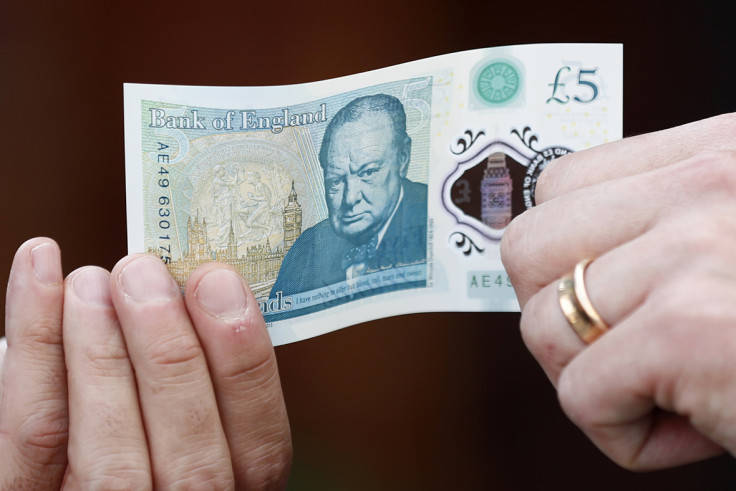Discovery of third fiver worth £50,000 sparks England-wide treasure hunt

KEY POINTS
- Micro artist behind the engraved notes wanted to 'make someone's Christmas'
- Final note likely to be found in England
The penultimate rare engraved £5 note, worth up to £50,000, has been located in Northern Ireland, leaving only one more remaining as the quest to find it reaches its boiling point.
The notes, engraved by micro artist Graham Short, from Birmingham, feature a drawing of Jane Austin. Each of four notes have a different quote from the British author to make each unique.
The Tony Huggins-Haig Gallery in Kelso are responsible for the launch of the project, and have insured each note for £50,000.
All of them were spent by the artist himself in each of the UK's home nations in an attempt to circulate them fairly across the country.
Since the third note was found in Northern Ireland, it means the fourth and final bill is likely to be discovered in England – the final home nation where Short dispensed the money.
Short told the BBC how the latest person to unearth one of his notes, an elderly woman from Northern Ireland, felt inclined to pass it onto someone of the younger generation.
"An old lady found it and she said 'I don't want my picture in the papers' and she said 'if it sells for a lot of money it will be better if young children could benefit from it'."
IT'S OFFICIAL! The 3rd of 4 £5 notes engraved by Graham Short has been discovered! #grahamshort #art #janeausten #fivers pic.twitter.com/Ijm08RIfBf
— THH Gallery (@thh_gallery) February 18, 2017
He spoke last year about wanting to "make someone's Christmas" by helping people win the generous money that the notes are valued at. However, all three have promised to keep hold of the notes rather than sell them.
In keeping with Short's hopes, two of the notes were duly discovered in December. One was found in a South Wales café after a customer had purchased a breakfast sandwich and received the note in his change. The second made an appearance in Scotland after being opened inside a Christmas card.
Under the Currency and Bank Notes Act 1928 law, it is illegal to make alterations to a UK bank note. The Bank of England's website advises that defacing "banknotes (by printing, writing or impressing upon them words, letters or figures, etc.)" can lead to criminal charges, "although the question of whether or not to prosecute in individual cases is up to the police and the courts".
© Copyright IBTimes 2025. All rights reserved.





















